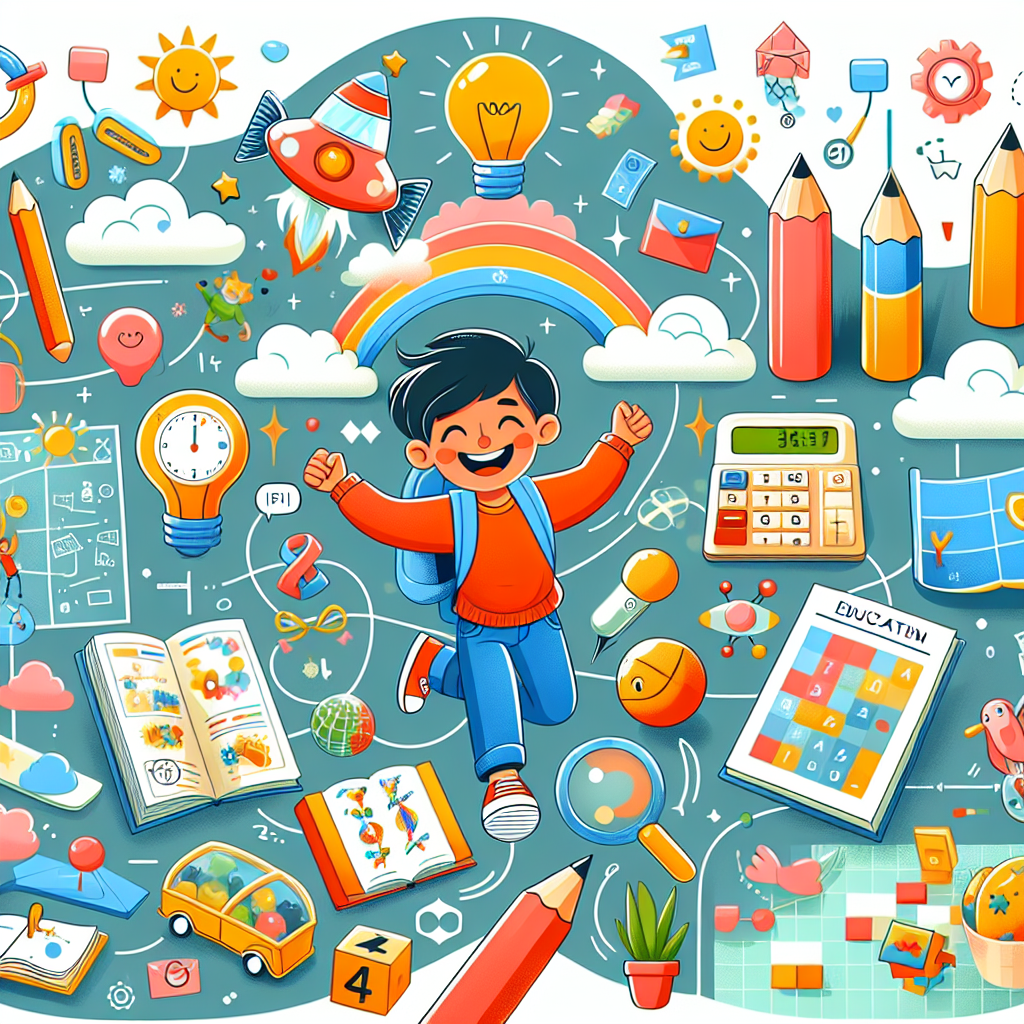Child Development: A Complete Guide to the Essential Stages
Introduction As parents, we want to give our children the best opportunities to develop harmoniously and be successful in life. An essential aspect in this process is education. But, we often face the challenge of motivating the little ones to learn. How can we make learning an enjoyable and effective activity? In this article, we will explore fun and effective strategies to stimulate your child's curiosity and motivate him in the learning process.
Understanding the Stage of Child Development To motivate the child in learning, it is crucial to understand the stage of development in which he is. Each stage comes with specific characteristics that influence the ability to concentrate and interest in certain types of activities. For example, preschoolers are drawn to play and experimentation, while schoolchildren are beginning to develop logical thinking and understanding of more abstract concepts. By adapting learning methods to the characteristics of each stage, you will significantly increase the chances of capturing your child's attention and interest.
Game Motivation Techniques Play is central to a child's learning because it facilitates exploration and natural curiosity. Integrating game elements into educational activities can turn tasks perceived as tedious into a source of fun. For example, you can use didactic games that combine math with adventure, or literature with roles and skits.
The Role of Technology in Learning Technology has become an integral part of our lives and can be a valuable ally in children's education. There are a multitude of educational apps and online platforms that can make learning interactive and engaging. From virtual lessons to interactive quizzes, technology can provide a variety of resources to encourage independent learning and keep a child engaged.
The Importance of Positive Feedback Positive feedback plays a crucial role in motivating the child. Genuine praise and recognition of one's efforts can reinforce positive behaviors and boost self-confidence. It is important to emphasize progress, not just the end result, and reassure the child that effort and perseverance are just as valuable as success.
Setting Realistic Goals Setting realistic and achievable goals is essential to keep your child motivated. Goals that are too high can be discouraging, while those that are too easy are not stimulating enough. Together with your child, set clear targets and measures of progress that will be celebrated when achieved, creating a sense of achievement and a motivating drive for learning.
Incorporation of the Child's Interests By taking into account the child's personal interests, the learning process can become much more attractive. If your child is fond of animals, use this theme to explore various topics, from biology to geography or literature. This personalization of content makes learning relevant and stimulating for the child.
Use of Rewards and Incentives Rewards and incentives can serve as motivation for the child in the learning process. Whether it's a points system, small prizes, or enjoyable activities after completing tasks, they can add an element of anticipation and joy. However, it is important not to overdo it with material rewards and instead focus on intrinsic rewards such as a sense of pride and personal satisfaction.
Creating a Positive Learning Environment A positive and stimulating learning environment makes a significant difference in a child's level of engagement. Make sure the study space is organized, quiet and full of educational resources. Also, getting involved in school activities and showing a genuine interest in your child's progress will help create an environment conducive to learning.
Conclusion Motivating your child to learn is not always an easy task, but with the right strategies, it can become an enjoyable and productive experience for both you and your child. Whether you integrate play into educational activities, use technology, or set realistic goals, the important thing is to create a learning environment where your child feels encouraged and excited to explore the world around them. Don't forget to visit our educational resources section and subscribe to our newsletter for more tips and ideas to inspire little ones on their educational journey.














































































































































